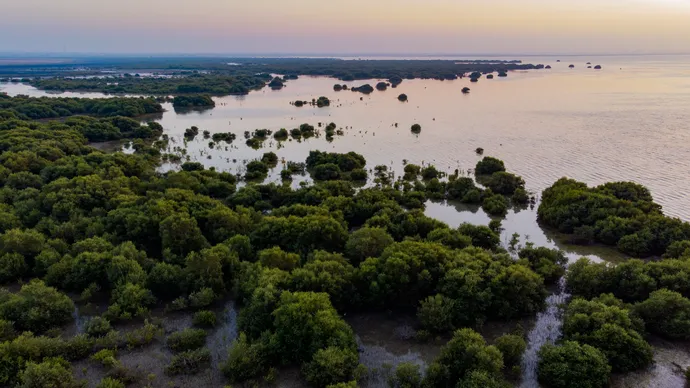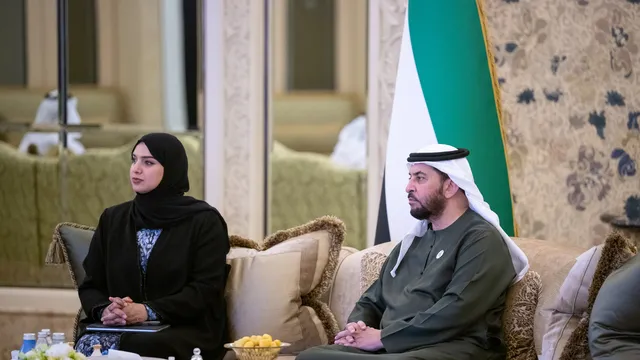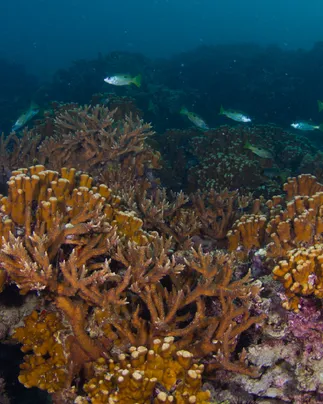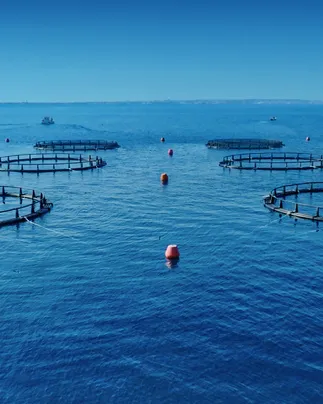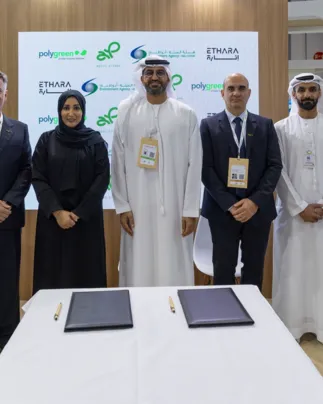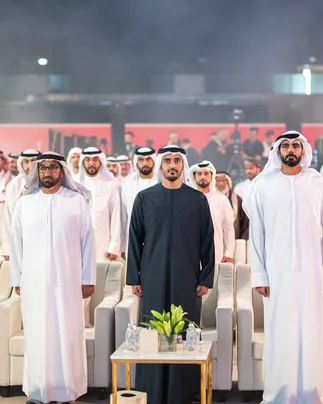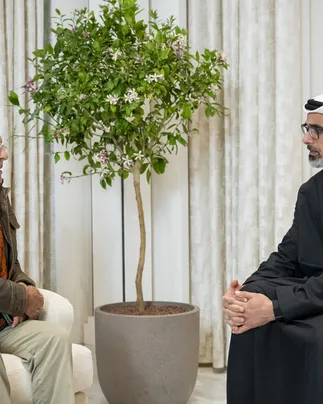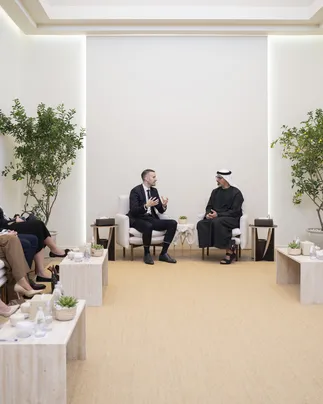As part of Abu Dhabi Climate Change Strategy and under the framework of the Abu Dhabi Mangrove Initiative (ADMI), the Environment Agency – Abu Dhabi (EAD) and the Japanese INPEX JODCO Foundation (the Foundation) have collaborated on a joint research initiative aimed at conducting pioneering, innovative studies focused on mangroves in Abu Dhabi.
The Memorandum of Understanding (MoU) was signed by Her Excellency Dr Shaikha Salem Al Dhaheri, Secretary General of EAD, and Mr Hiroshi Fujii, Representative Director of the Foundation. The agreement will establish a robust framework for studying the carbon storage, above-ground and below-ground sequestration rates of Abu Dhabi’s mangrove ecosystems, with a focus on assessing, as well as comparing natural and planted sites – a critical step in supporting global carbon mitigation efforts.
Her Excellency Dr Shaikha Salem Al Dhaheri, Secretary General of Environment Agency – Abu Dhabi, said: “Mangroves are vital allies in our fight against climate change, offering unparalleled coastal protection and exceptional carbon sequestration capabilities. This partnership underscores the power of international collaboration in advancing environmental research. United in purpose, we strive to blend innovation with collective knowledge to safeguard these priceless ecosystems, strengthening Abu Dhabi's dedication to sustainability and charting a course toward a vibrant and sustainable tomorrow.”
This partnership underscores the shared commitment of EAD and the INPEX JODCO Foundation towards advancing environmental conservation and the findings from this research will contribute to a global effort addressing climate change through cutting-edge research and innovation. These ecosystems play a vital role in maintaining biodiversity, supporting coastal resilience and mitigating the impacts of climate change by promoting nature-based solutions.
Reflecting on EAD’s ongoing commitment to enhancing social and environmental contributions in the UAE, the partnership will also reinforce its mission to strengthen relations and promote mutual understanding between Japan and the UAE.
Mr Hiroshi Fujii, Representative Director of the Foundation said: “We are honoured to work in partnership with the Environment Agency – Abu Dhabi to explore the carbon sequestration potential of mangroves, one of the UAE’s most valuable ecological assets.
“At the Foundation, we are deeply committed to environmental conservation, and this research builds upon our mission to combat climate change with the UAE. Through our collaboration, we aim to bring to light new insights about the climatic benefits of preserving and enhancing these critical habitats. Our partnership with EAD signifies the joining of shared visions for a more sustainable future, and we look forward to pushing the boundaries of environmental science and expanding environmental activities together.”
The research initiative is part of EAD’s broader mandate to protect and study Abu Dhabi’s natural ecosystems, enhance biodiversity and apply the best global technologies and innovations to environmental management efforts. It will also further demonstrate the emirate’s sustainability pledges and its alignment with international climate goals.
The Abu Dhabi Mangrove Initiative (ADMI) is the comprehensive programme that encompasses all mangrove and blue carbon ecosystem restoration and research projects in the emirate. It aims to advance scientific restoration efforts based on six key principles: education, engagement, research, protection, partnership and innovation. The initiative was announced in February 2022 during a meeting between His Highness Sheikh Khaled bin Mohamed bin Zayed Al Nahyan, Crown Prince of Abu Dhabi and Chairman of the Abu Dhabi Executive Council and His Royal Highness Prince William, the Prince of Wales, at the Jubail Mangrove Park.
To achieve its goals, the initiative has launched an open partnership programme that invites governmental and non-governmental entities to join and adopt core principles in the areas of environmental conservation, education and restoration. At the local level, the initiative works with businesses, governmental institutions and community organisations to highlight the vital role of these natural habitats as nature-based solutions, as well as to guide all mangrove restoration projects and ensure their implementation according to scientific best practices to achieve evidence-based restoration. To date, the initiative has succeeded in attracting 15 local and eight international partners – all united by the goal of protecting and ensuring the sustainability of these unique ecosystems.


